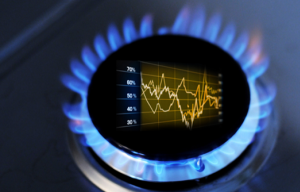 Several factors affect the sale and purchase of gas in Nigeria. While NNPC is the sole importer of gas in Nigeria, it also sells gas to many retail fuel companies. In the past, private marketers have been reluctant to buy gas directly from the NNPC, arguing that their costs would not be recovered by the pump price. This has now changed, with TotalEnergies taking delivery of the product. However, several indigenous companies have stopped operations, causing long queues at gas stations.
Several factors affect the sale and purchase of gas in Nigeria. While NNPC is the sole importer of gas in Nigeria, it also sells gas to many retail fuel companies. In the past, private marketers have been reluctant to buy gas directly from the NNPC, arguing that their costs would not be recovered by the pump price. This has now changed, with TotalEnergies taking delivery of the product. However, several indigenous companies have stopped operations, causing long queues at gas stations.
While it is possible that methanol is a regular additive in gasoline, it is blended in very small amounts and is only present in small amounts. According to the recent contamination, gasoline cargo imported under Nigeria’s direct sale and purchase scheme was received last week at a major reception terminal offshore Lagos. The cargo was then distributed to major fuel marketers in Nigeria. MRS Oil Nigeria accounted for some 5,000 mt of the contaminated fuel. According to the company’s website, this cargo contained 20 percent methanol.
The pricing of gas and oil in Nigeria varies depending on the chemical composition of crude oil. Unlike the petroleum industry, the gas market in Nigeria does not depend on a single commodity. Traders must also adhere to strict requirements regarding local content and sourcing. This is true in Nigeria, where domestic companies must invest in a local firm or local businesses, while international companies must have a 50% stake in a Nigerian company.
The Shagari government’s implementation of the 1982 Revenue Act and Decree 36 diluted the government’s share of oil revenue. This meant that the federal government would receive only 55% of oil revenue and local governments would receive 32.5%. Additionally, 1.5% of the oil revenue went to a special fund for the development of oil-producing areas. Despite the drastic cutbacks, Nigerian oil revenues rose to an all-time high of $9 billion in 1980. Despite its plight, Nigeria’s oil-related revenues are now only a fraction of their previous levels.
While oil production in Nigeria has risen steadily over the past few years, the air quality in many cities has remained poor. Air pollution is linked to increased respiratory and cardiovascular disease. As a result, more than half of developing countries are now using high-sulphur fuels, which are illegal in western countries. The government of Nigeria encourages this by offering an opaque subsidy scheme to keep prices low. In addition, oil companies can only make high-sulphur fuels if other countries agree to accept them.
While Nigeria is the largest gas producer in Africa, its domestic gas usage capacity remains the lowest in the continent. This is largely due to inadequate infrastructure and poor awareness among Nigerians. The National Gas Expansion Policy has launched a program aimed at raising awareness of gas. The Federal Government and ENI, which are partners in the development of the Nigeria LNG, are working to improve the country’s domestic gas use capacity.